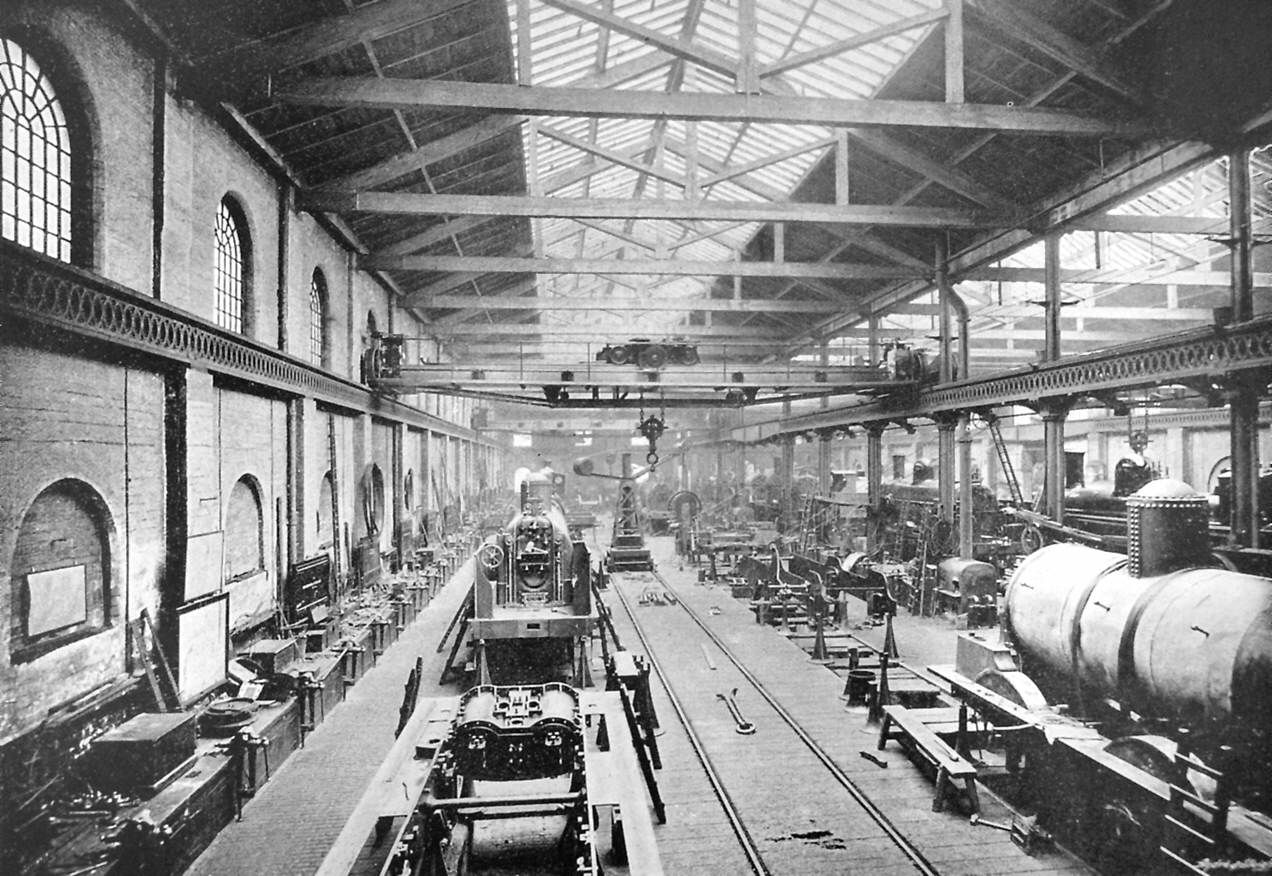Photo of the aftermath of the Battle of Gettysburg, 1863
In the United States, the idealism of the American version of the
Romantic revolt attempted to integrate the Enlightenment ideals of reason and
order and the superiority of these Western ways with Romantic ideals that
asserted the value of the individual. This produced painful excesses: genocide
of the native people, enslavement of millions of Africans, and, one of history’s
worst horrors, the US Civil War.
America had to undergo some difficult adjustments before it began
to integrate the Christian belief in the worth of every individual with the respect
for the law that enables individuals to live together in peace. But the slaves
were freed, and the government began to compensate the native tribes (with
reserves of land and with cash) and take them into the American mainstream
(with opportunities for Western-style educations), or rather, to be more accurate,
Americans began moving toward these ideals with more determination, and they continue
to do so into this era. A very slow process, but we must not give up.
Thus, in the larger picture of all of these events, the upheaval
called the Romantic Age wrote into the Western value system a greater
willingness to compromise and a deeper respect for the ways of compromise, resulting
in the institutions of democracy. These guided people toward balance and so kept
their various countries from devolving into chaos. Democracy was, and is, our
best hope for creating institutions by which people use reason and debate
instead of war to find a timely balance in each new generation between the
security-loving conservatism of the establishment and the heated passions of
the reformers.
Lesser sideshows in the swirls of history happen. These are
analogous to similar sideshows that have happened in the biological history of
this planet. Species and subspecies meet, compete, mingle, and then thrive or
die off. But the largest trends are still clearly discernible. The dinosaurs are
long gone, and so it also goes in human history. A viable new species of
society keeps emerging in what can properly be called a synthesis. In a
compromise, two opposing parties each give a bit of what they like in order to
get a bit more of what they want. What happened at the end of the Romantic
upheaval was like what Hegel called a synthesis, a melding between a thesis and
its antithesis, but it was also something more. As conditions changed and old cultural ways became obsolete, the
synthesis that arose was a new species of society: modern representative democracy.
A new life form, vibrant and unique.
Occupy Wall Street protesters, New York, 2011
The idea of democracy evolved until it saw the protecting of the
rights of every individual citizen as the most important reason for its
existence. All of this came about from the melding of Christian respect for the
value of every single human being, Roman respect for order and discipline, and
Greek love of the abstract and of the seer who can question the forces that be,
even those of the material world. Representative democracy based on universal
suffrage was the logical goal of the Renaissance and Enlightenment world views
when they were applied by human societies to themselves. The Romantic Age simply
showed that the adjusting and fine-tuning takes a while. And it continues on.
In
the meantime, what of the Enlightenment world view? Inside the realm of science,
the Enlightenment was still entirely in place and, in fact, was getting stronger.
The Romantic revolt left it untouched, even invigorated. Science came to be
envisioned, by scientists, as the best way to fix the ills of society.
Under
the scientific world view, as both Newton and French scholar Pierre-Simon
Laplace had said, all events were to be seen as results of previous events that
had been their causes, and every single event and object became, in an
inescapable way, like a link in a chain that went back to the start of the universe.
The giant universal machine was ticking down in an almost mechanical way, like
a giant clock.
While
the Romantic revolt ran its radical course, governments, industries,
businesses, armies, schools, and nearly all of society’s other institutions
were quietly being organized along the lines suggested by the Enlightenment
world view. The more workable of the Romantic ideals (e.g., relief for the poor,
protection of children) were absorbed into the Enlightenment worldview as it kept
spreading until it reigned, first in the West, then gradually in more and more of
the world.

Crewe locomotive works,
England, 1848
At
this point, it is important to stress that whether or not political correctness
approves of the obvious conclusion we are heading toward, it is there to be
drawn and so should be stated explicitly. The Enlightenment worldview and the
social system that it spawned got results like no other ever had. It just worked.
European societies that operated under it kept increasing their populations,
their economic output, and, more tellingly, their control of the physical
resources of this planet. However, it is also important to stress that the
Westernizing process very often wasn’t even close to fair or just. Western
domination of this planet did happen, but in the twenty-first century, in most
of the West, we are ready to admit that while it has had good consequences, it
has had plenty of evil excesses as well.

Naval gun factory, Woolwich, England, c. 1897
No comments:
Post a Comment
What are your thoughts now? Comment and I will reply. I promise.